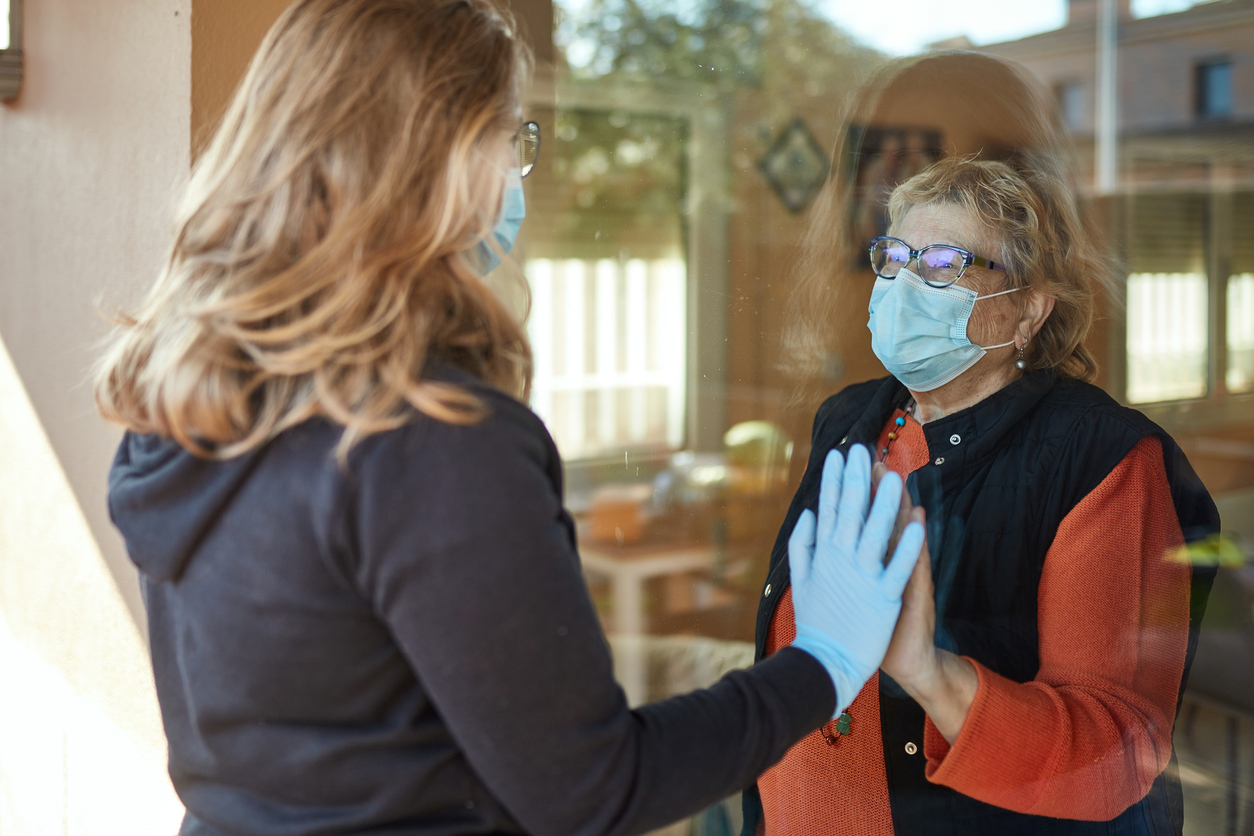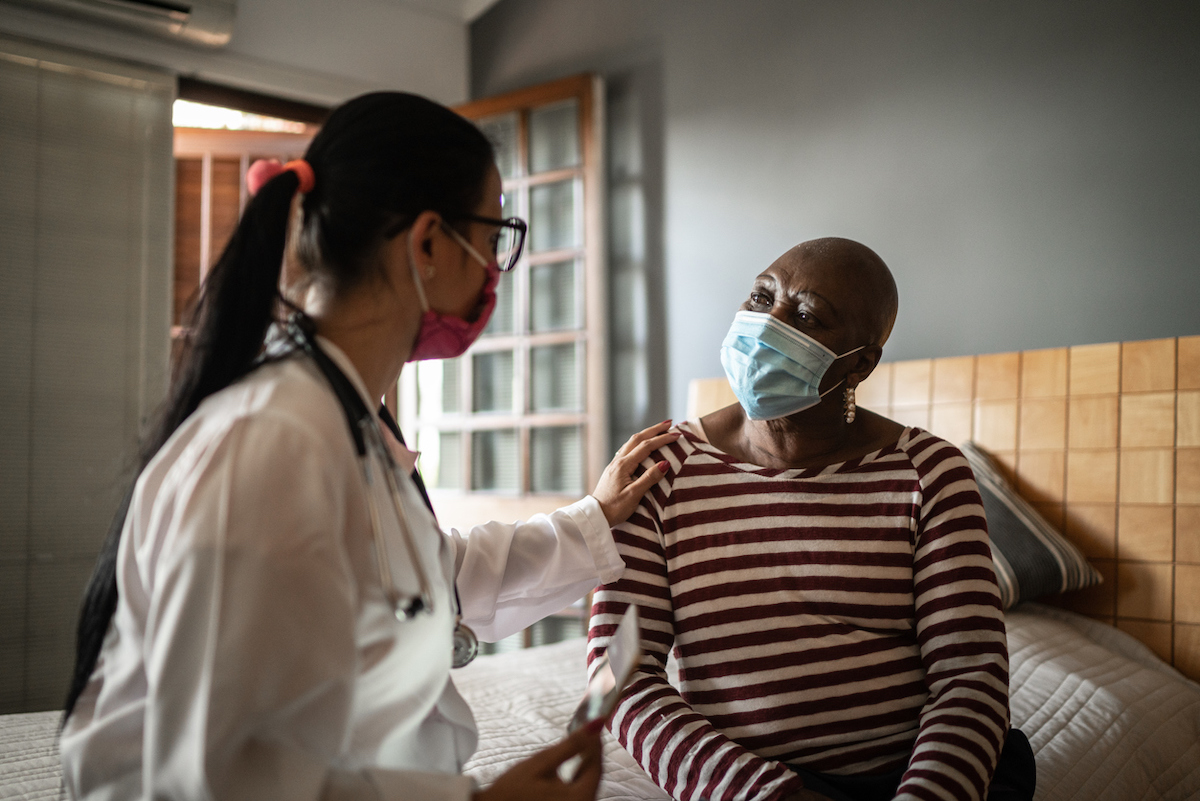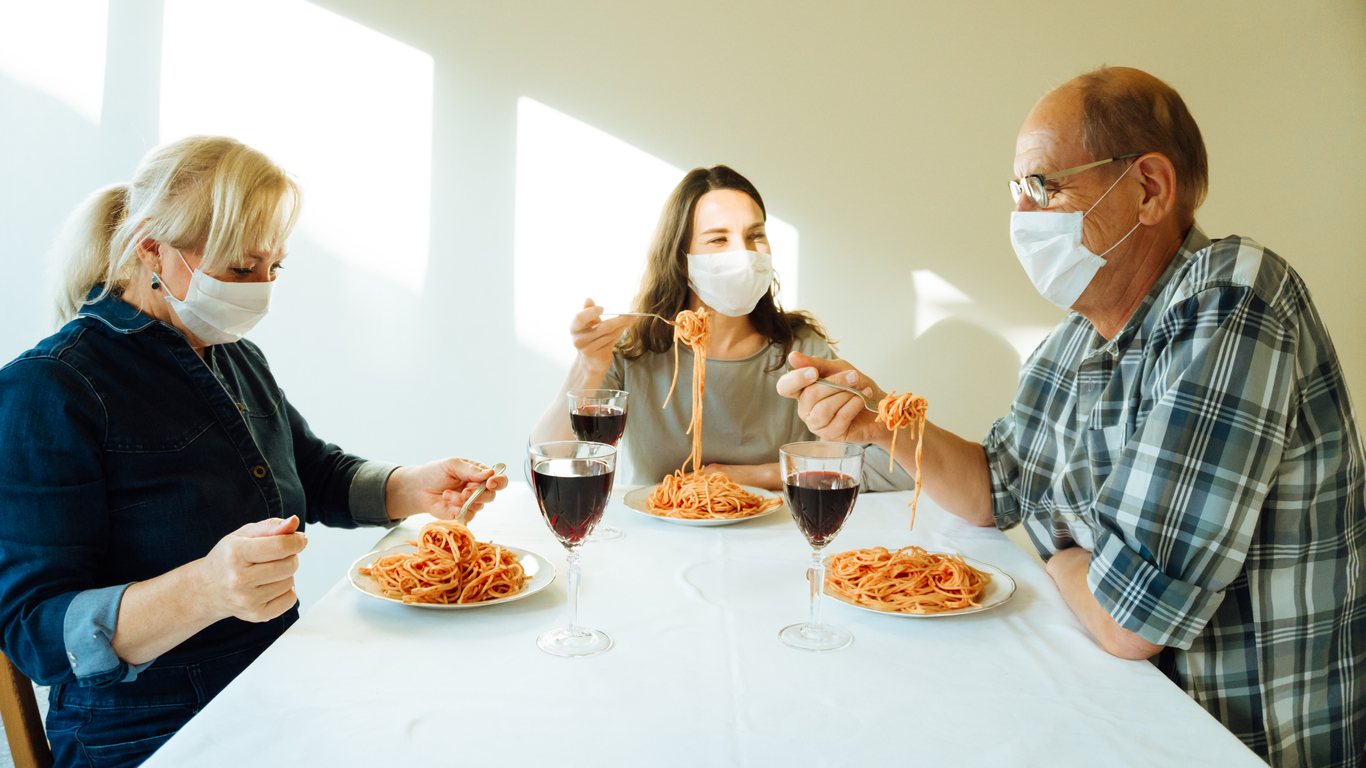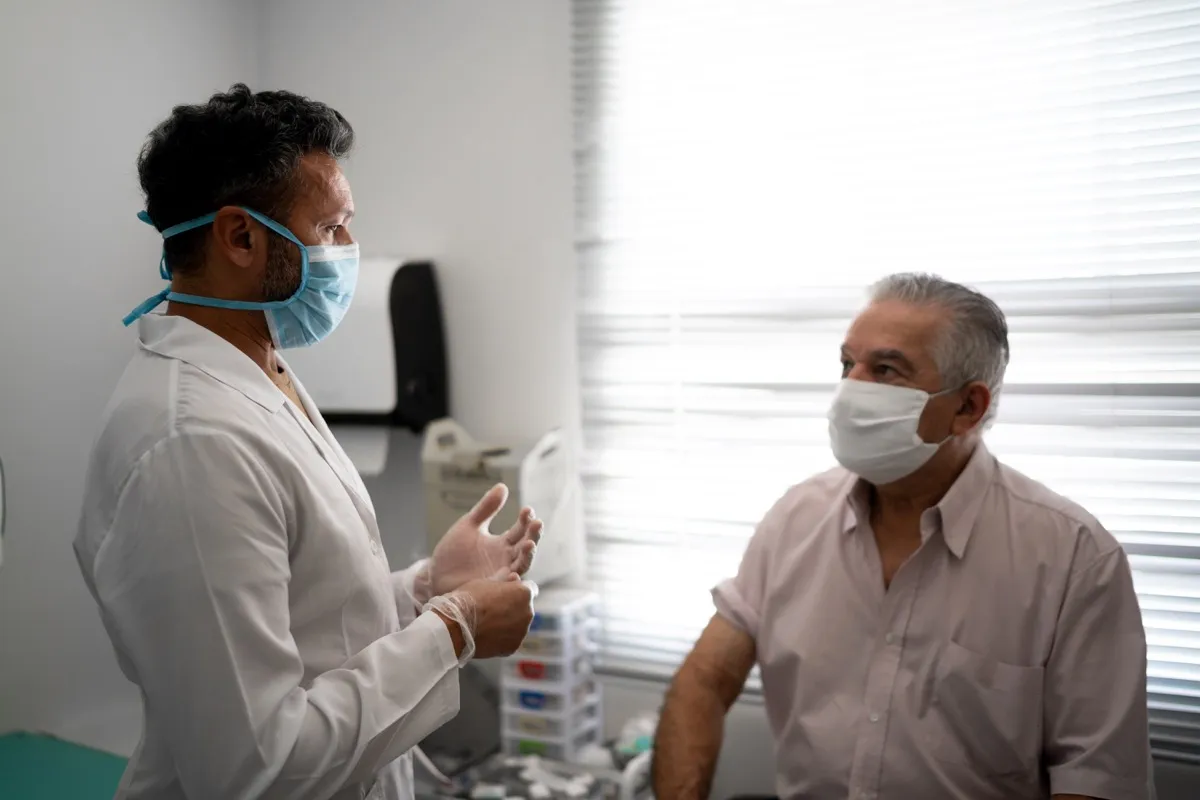It’s understandable if the safety precautions keeping you away from your loved ones are adding to “pandemic fatigue,” but experts warn that simply getting your vaccine does not erase the danger of getting together with older family members, NPR reports. This is especially true of seniors who live in nursing homes or other long-term care facilities. According to the COVID Tracking Project, less than 1 percent of the U.S. population lives in long-term care facilities, but as of Feb. 4, 36 percent of all COVID deaths have been in these places. “Everybody got excited when the vaccines came out,” June McKoy, MD, associate professor of medicine at Northwestern University Feinberg School of Medicine, told NPR. “Families were hoping this would liberate their parents, but unfortunately, we are telling them, not yet,” said the doctor, who also works with nursing homes in Chicago. He warns that until enough of the population overall has been vaccinated, “you still pose a clear and present danger to your parents.” And for more on risk factors, check out If You’ve Had This Common Illness, You’re More Likely to Die From COVID. If you’re planning on seeing a senior family member who lives independently, wait at least 10 days after your second vaccine dose to create a somewhat safer scenario, provided that “you should still wear your mask, make sure your hands are sanitized, and you should still socially distance,” McKoy says. And as difficult as it may be, it’s also important not to give in to the temptation to lovingly embrace each other during your meeting. “Wear that mask, give them a quick hug around the waist, then back off. Don’t kiss them extensively, and maintain your distance,” William Schaffner, MD, professor of infectious diseases at Vanderbilt University Medical Center, told NPR. And for more on what to expect post-dose 1, check out Dr. Fauci Says Don’t Do This After Your First COVID Shot. Others have cautioned against relying too much on the idea that vaccines are infallible. During a virtual town hall hosted by CNN on Jan. 27, Anthony Fauci, MD, responded to a viewer-submitted question about how soon it would be before family members could safely visit one another after being immunized. He emphasized that “getting vaccinated does not mean now you have a free pass to travel, nor does it say you have a free pass to put aside all the public health measures that we talk about all of the time.” He went on to explain that even though everyone present at a family gathering being fully vaccinated “would give you as a group about a 94 to 95 percent efficacy,” he still advises against hitting the road to meet up right now. “The situation does not change: it is not a good idea to travel, period.” And for more regular COVID news sent right to your inbox, sign up for our daily newsletter. Ravina Kullar, MD, an epidemiologist and spokesperson for the Infectious Disease Society of America, told NPR that while progress is being made, there is still a long road ahead. “I would consider it safer once we achieve that herd immunity level and we are far from that point,” she cautioned of visiting family members. “So I would say still wait [to visit seniors].“ae0fcc31ae342fd3a1346ebb1f342fcb While Fauci told CNN in early February that we could achieve herd immunity before the end of 2021, there are a few factors that could stand in our way. “I think if we do it right—if we really efficiently and effectively get people vaccinated—we can do that by the end of the summer [or] the beginning of the fall,” he said. “Having said that, there is an absolute ‘but’ in that. And the ‘but’ is that we have to address the variants.” And for more on what could get in the way of herd immunity this year, check out Dr. Fauci Says These 3 Things Could Prevent Us From Returning to Normal.



